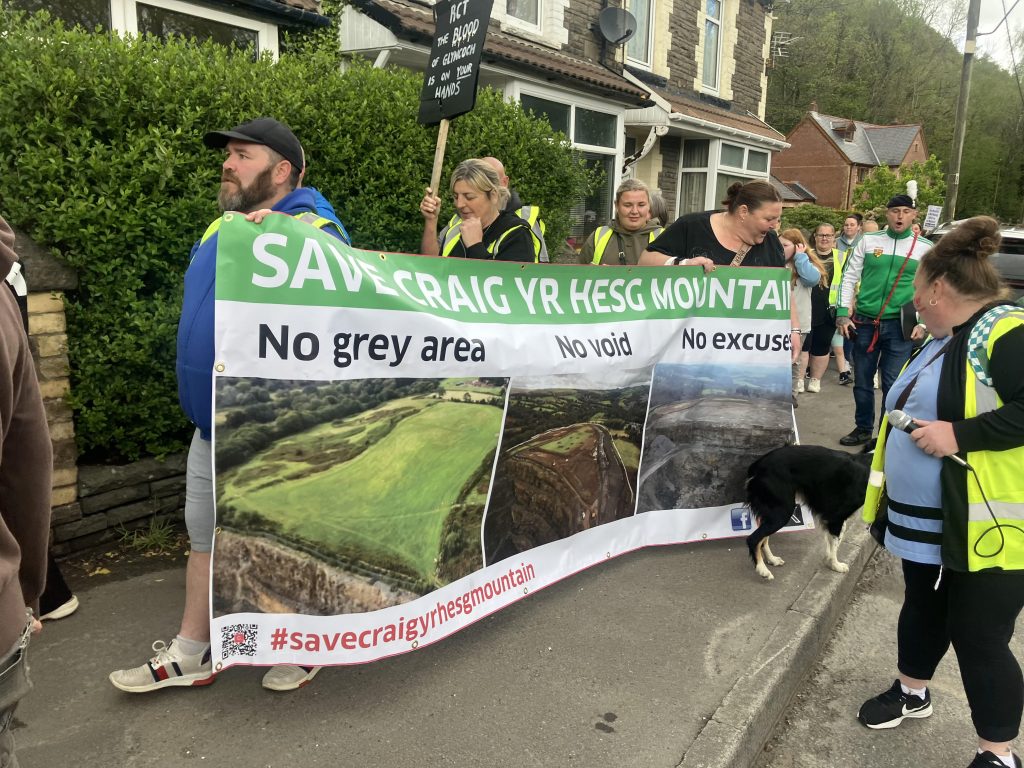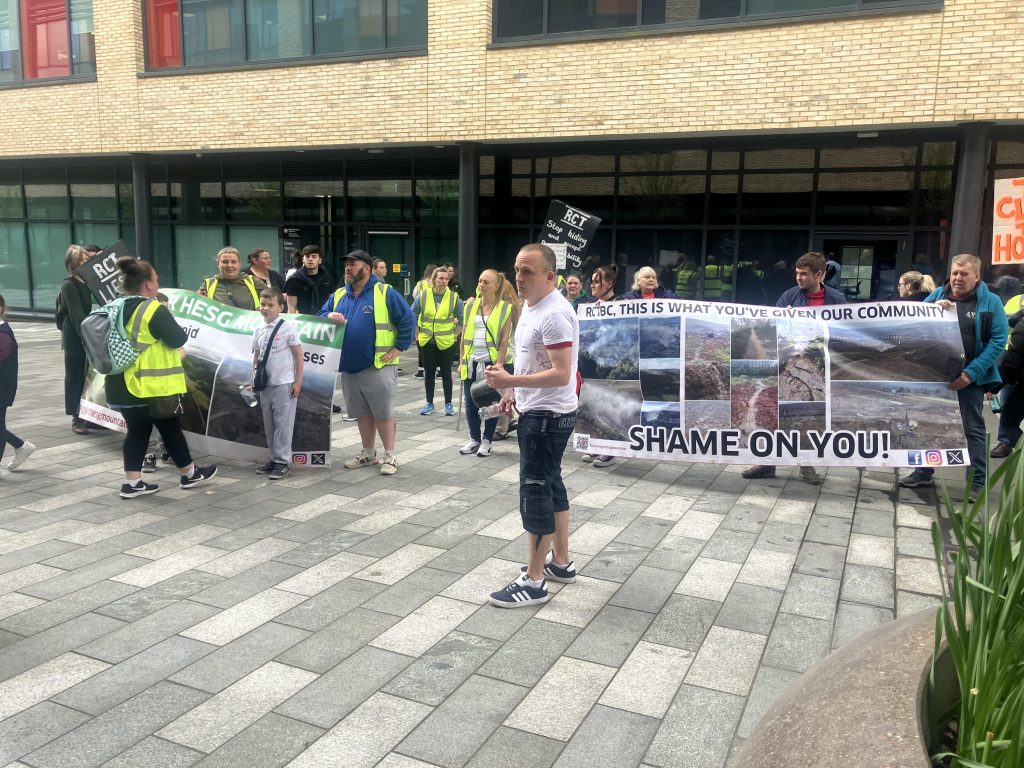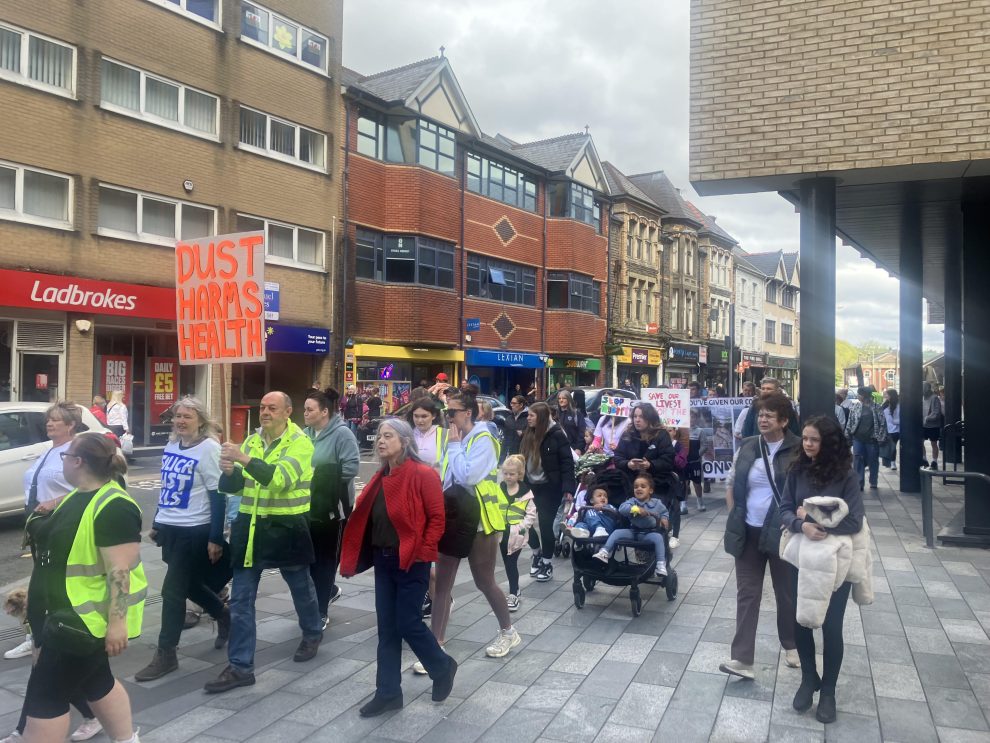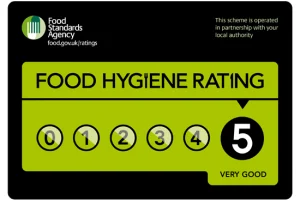CHILDREN in a Welsh village are asking their parents “is my school going to fall down?” because of concerns over nearby quarrying, campaigners say.
Residents marched from Glyncoch to Rhondda Cynon Taf’s council offices in Pontypridd town centre on Wednesday, April 23, to protest against the impact that operations at Craig yr Hesg quarry are having on their community.
The quarry was supposed to cease all operations in 2022 but owner, Heidelberg Materials, applied to extend the site for another six years. However, this was rejected by Rhondda Cynon Taf Council (RCT) planners in 2022 after hundreds of objections citing the impact of blasting on residents’ health and wellbeing.
The company appealed the decision to Planning and Environment Decisions Wales (PEDW) inspectors and Welsh Government ministers signed off on the controversial proposals in October, 2022.

Ian Gibson, a resident and local campaigner on the issue, said there had been multiple protests, marches, debates in the Senedd and a couple of meetings with RCT.
He said: “We’ve got to a point now where we think that they need to step up and realise that everything that they’re quoting when they say regulations is so far outdated that it’s why we’ve felt it’s so wrong.”
He said the regulations that had been used needed to be reviewed and made more modern so they protected people especially when the quarry was on their doorstep.
Mr Gibson mentioned the 1000m buffer zone idea which he said was lost by four votes in the Senedd the last time it was there.
He said there had been 12,000 signatures from people supporting the 1000m buffer and he said that when they were told you could not blanket ban every quarry within 1000m, you could also not presume that every quarry within 1000m was safe either.
He said: “Every quarry that is within 1000m should be treated on a case by case basis and up to date thorough monitoring for everything that people are saying it impacts needs to be carried out so there’s no grey areas, it’s black and white.
“We’re either overreacting or they’re underplaying. The reason we’re arguing now is because there’s such a grey area just as big as the quarry itself.”
Mr Gibson said: “Glyncoch is a case study happening in real time where you can just listen to the people, put the monitoring there and find out if they’re telling the truth or not.”
He said wellbeing had gone because people could at one time go and take in that green space, take in the wildlife and play with their kids and dogs but now there was nowhere for them to go.
He said in terms of mental health, people had explosions going on around them, cracks in their houses, they were worried what they were breathing in was toxic and that it was being hidden and there were concerns in terms of people’s physical health.
Fellow resident and campaigner Chris Whiles said everyone was concerned and there was a school 109m away from the quarry.
“You’ve got children four or five years old coming home asking their parents, is my school going to fall down?
“It don’t bear to think about. What people see on a daily basis is the quarry, we’ve challenged everything.”
Mr Whiles said during flooding in Pontypridd there was water coming down from the bunds affecting Glyncoch Rugby Club and making walls unstable.
He said it was one thing after another after another with the expansion, claiming, “it seems like it was pushed ahead so much they didn’t risk assess anything.”
On the conditions of planning, Mr Whiles said that RCT wouldn’t challenge things if it wasn’t 100% sure it would win the argument and it would just say there was “no technical evidence.”
He said if there was a 5% chance that it was going to be detrimental to the community’s health they wanted it challenged.
“They’re representing the community, they should need to think about their communities.
“It’s not just us. I’m 47. I might have 10, 20, 30, 40 years left. My kids are nine years old.
“We can’t just give up. If we give up it means we’re giving you the mountain and that’s all our past memories gone. They’re locked away and no-one’s ever going to make new memories. We want to make new memories.”
He said they’re doing this for now and for the future because “if we don’t who else is going to do it?”

Astrid Dahl, Heidelberg Materials area general manager, Aggregates South Wales, said: “Operations at Craig-yr-Hesg quarry are subject to 57 modern planning conditions. These have been shaped by Government policy and the work of regulators to ensure that people, property and the environment are protected. These include strict rules for quarry blasting and all blasts at the quarry are well within permitted vibration levels.
“In addition to supplying vital construction materials and supporting the local economy, we are committed to playing our role within the local community. We are keen to develop dialogue with the local people and continue working with RCT and others to establish a community liaison group. This will help to ensure that the benefits of our operations to the local area and community can be fully realised.”
A Rhondda Cynon Taf Council spokesperson said: “The council previously refused planning permission to expand the quarry’s operation in 2020, before Hanson (now Heidelberg Materials UK) exercised its right to lodge an appeal against that decision.
“The council’s decision was subsequently overturned by Welsh ministers, who granted the relevant planning permission for the western extension of the quarry.
“We acknowledge the concerns that the community has raised, and continues to raise, and officers have met community representatives on several occasions to discuss these in more detail.
“However, as a result of the decision by Ministers, the Council’s role is now to monitor the conditions imposed on the planning permission that they granted. This includes monitoring air quality, enforcing the environmental permits that fall under our remit, and challenging any breaches that occur.
“We continuously monitor the site to ensure that relevant controls are being adhered to by Heidelberg Materials UK. To support this, we upgraded our air quality monitoring equipment in the area last year, to enable us to check compliance with national air quality standards.
“All air quality data is reported to Welsh Government and is publicly-available online.”
















